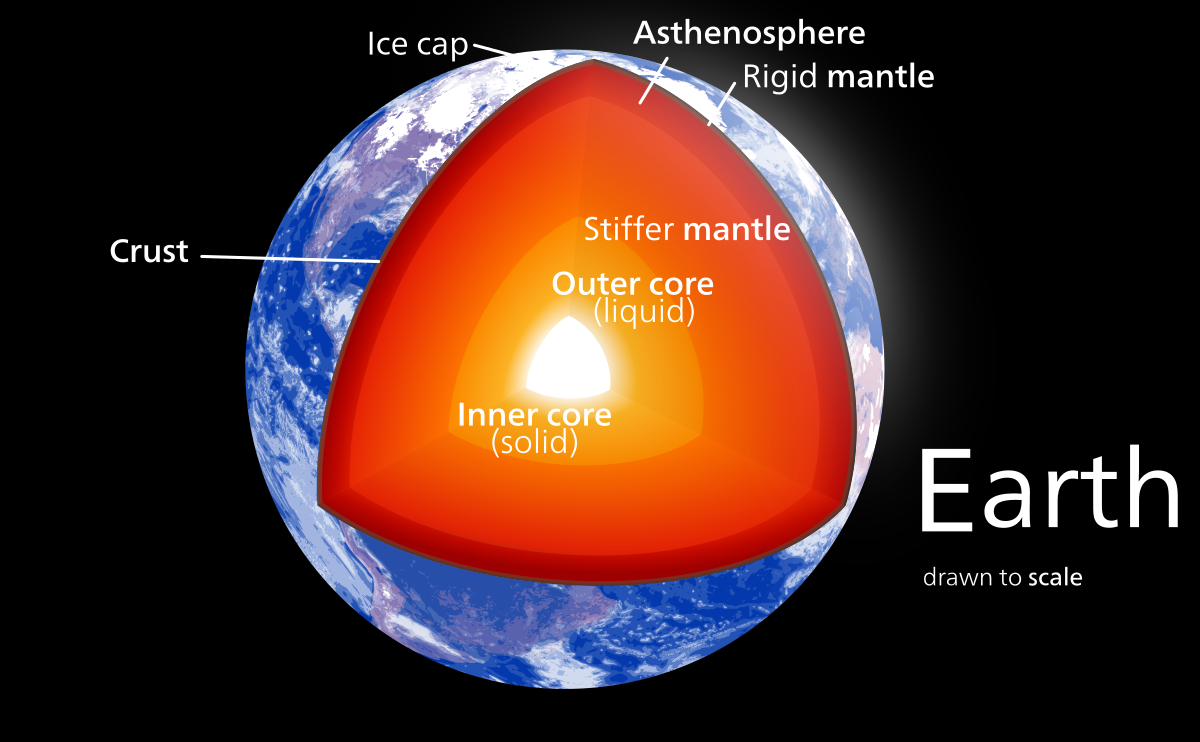orochi's feat
i don't know how to post the calculation so i leave it here
1) I use the parameters used in the original calculation
2) the result exceeds the energy needed to destroy the earth, but this is NOT a problem because the object is not an explosion but is more like a bullet and is absorbed before leaving the earth's crust (considering its energy, had it not been absorbed it probably would have traveled into space for quite a while)
A) we need to find the formula to calculate the viscous friction
based on wikipedia
https://en.wikipedia.org/wiki/Stokes'_law
- (sphere)
Re (reynolds' s number) = (2 * radius * speed * fluid density) / fluid viscosity
if Re <1 we can use the following formula to calculate the friction:
F (viscous friction force) = -6 * pi * viscosity * radius * speed
the viscosity of the upper terrestrial mantle varies from 10e + 19 to 10e + 24 (source wikipedia) and the lower mantle is denser than the upper one so for simplification I will use a lower average (10e + 22) even if it should be closer to 10e +24
I use the density of the earth because I could not find the specific one of the earth's mantle (there shouldn't be big differences) d = 5515 kg / m ^ 3
since the object starts from standstill and accelerates
to find the work we have to calculate the friction at the start and the friction at the end and then do the integral using the distance
then Re1 (stopped -> speed (v = 0)) = 2 * r * 0 * density / Viscosity = 0 (Re <1)
F1 = 0 (since it is a multiplication by 0)
Re2 = (2 * 366717.0236 * 3177965/20 * 5515) / 10e + 22 = 6e-8
Re <1 then we can use the above formula
but to calculate the integral:
speed (v) = space (d) / time
(F = -6pi * viscosity * radius * distance / time)
the object starts from d1 = 0 (starting space)
and arrives at d2 = 3177965 m (distance traveled / point of arrival)
work (joule) = force (= friction in this case in newtons) * displacement (m)
since the friction force changes according to the speed to find the work we have to calculate the following integral
integral from d1 to d2 of (F sd) = integral from 0 to d2 of -6pi * viscosity * radius * (d / t) ds
= Integral from d1 = 0 to d2 = 3177965 of -6pi * 10e + 22 * 366717.0236 * (d / 20)
using
https://www.integral-calculator.com/
the result W (work) = -
+174441643610431532107500000000000000000000 joules
or 1.74e + 41 j
I hope I have not made some casting mistake in doing so

